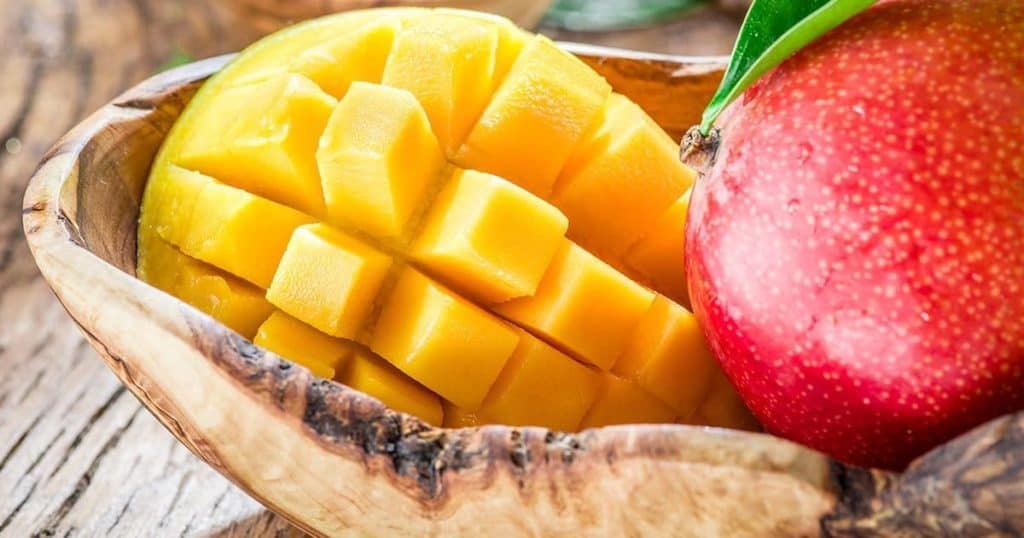Top 10 superfoods

If you think you’re uber-virtuous eating your five-a-day, then think again! Although the UK government recommends a daily intake of five portions of fruit and veg, experts say this is nowhere near enough – we ought to be aiming for nine or 10 to maintain good health. So if getting the kids to eat their greens is a nigh-on impossible battle, here are our recommendations for superfoods that are particularly giving when it comes to their nutritional value and ability to prevent disease. Top of the top superfoods is ‘king of the fruits’, mango…
[swpm_protected for=”4″ format_protected_msg=”1”]
- Mango Justifiably dubbed the ‘king of fruits’, mangoes protect against cancer (notably breast, colon, prostate and leukaemia); lower cholesterol; alkalise the body; benefit skin and eyes; are good for digestion, with enzymes that break down protein; and are high in antioxidant Vitamin C and E. They’re also an excellent snack as they have a low glycemic index for fruit – in other words, they don’t produce a sugar high.
- Aubergines Full of calcium and betacarotene, aubergines are rich in bug-beating antioxidants (mainly from nasunin, which gives them their purple colour). Also a good source of Vitamins B1 and B6 and potassium, and the minerals copper, magnesium and manganese, they’re particularly good for the cardiovascular system.
- Cranberries American Indians allegedly taught their white invaders to eat cranberries to fight scurvy – testament to the fact that these innocuous little berries are rich in antioxidants, helping also to prevent build-up of plaque in the arteries and proven in a number of trials to relieve symptoms of urinary infections. Don’t drink cartoned cranberry juice, though, as that’s high in sugar which will only exacerbate UTI symptoms – you need to get supplements from a health food store.
- Goji berries A power-pack of winter-busting nutrition, these Asian fruits – sold dried in many supermarkets and health food stores – contain up to 21 trace minerals. They’re said to be the richest source of carotenoids, including beta-carotene, of all known foods.
- Kiwi fruit Another unsung hero on the immune front, kiwis contain almost twice as much Vitamin C as oranges, more fibre than apples and as much Vitamin E as avocados. A single kiwi contains all ‘your daily reference nutrient intake’ of Vitamin C, the amount recommended by world health organisations – though we’d beg to differ and reckon you need way more with modern-day stresses.
- Mangetout Most notable for their rich potassium content (proven to be beneficial for heart health), mangetouts are also a good source of fibre and Vitamins A, C and K.
- Pineapple Hawaians eat pineapple as an antidote for indigestion and bloating – and they’re spot on. Pineapple contains bromelain, an important digestive enzyme that kills bacteria and means a chunk of the fresh fruit breaks down protein many times its own weight in a few minutes.
- Pomegranate Hailed as a new superfruit delivering three times as many antioxidants as the antioxidant wonderkind green tea, pomegranates have anti-bacterial, anti-viral and anti-tumour properties.
- Parsley Particularly rich in Vitamin K and high in Vitamin C, parsley – the raw herb, that is – contains oils (particularly myristicin) that have been shown to inhibit the formation of tumours in animals, most particularly in the lungs. Parsley is an unsung hero when it comes to superfoods.
- Raspberries Providing around 40% of your daily recommended dose of Vitamin C as well as other powerful antioxidants, such as quercetin, raspberries prove their worth as a preventive against cancer, heart and circulatory disease and general age-related decline.
[/swpm_protected]
